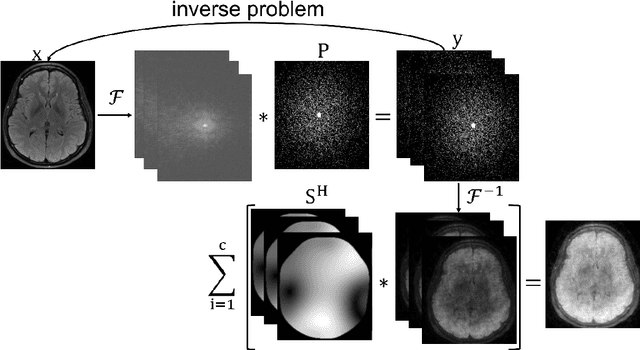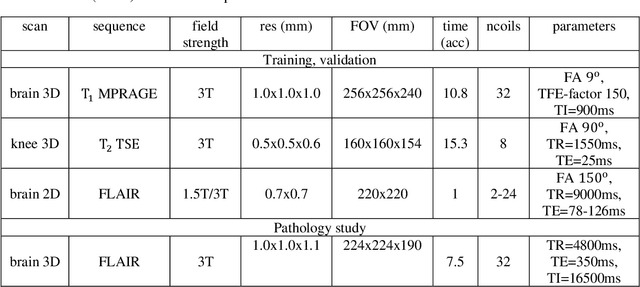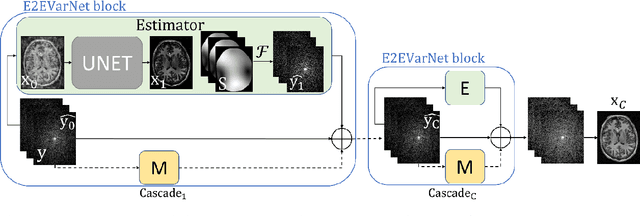D. Karkalousos
Assessment of Data Consistency through Cascades of Independently Recurrent Inference Machines for fast and robust accelerated MRI reconstruction
Nov 30, 2021



Abstract:Interpretability and robustness are imperative for integrating Machine Learning methods for accelerated Magnetic Resonance Imaging (MRI) reconstruction in clinical applications. Doing so would allow fast high-quality imaging of anatomy and pathology. Data Consistency (DC) is crucial for generalization in multi-modal data and robustness in detecting pathology. This work proposes the Cascades of Independently Recurrent Inference Machines (CIRIM) to assess DC through unrolled optimization, implicitly by gradient descent and explicitly by a designed term. We perform extensive comparison of the CIRIM to other unrolled optimization methods, being the End-to-End Variational Network (E2EVN) and the RIM, and to the UNet and Compressed Sensing (CS). Evaluation is done in two stages. Firstly, learning on multiple trained MRI modalities is assessed, i.e., brain data with ${T_1}$-weighting and FLAIR contrast, and ${T_2}$-weighted knee data. Secondly, robustness is tested on reconstructing pathology through white matter lesions in 3D FLAIR MRI data of relapsing remitting Multiple Sclerosis (MS) patients. Results show that the CIRIM performs best when implicitly enforcing DC, while the E2EVN requires explicitly formulated DC. The CIRIM shows the highest lesion contrast resolution in reconstructing the clinical MS data. Performance improves by approximately 11% compared to CS, while the reconstruction time is twenty times reduced.
 Add to Chrome
Add to Chrome Add to Firefox
Add to Firefox Add to Edge
Add to Edge